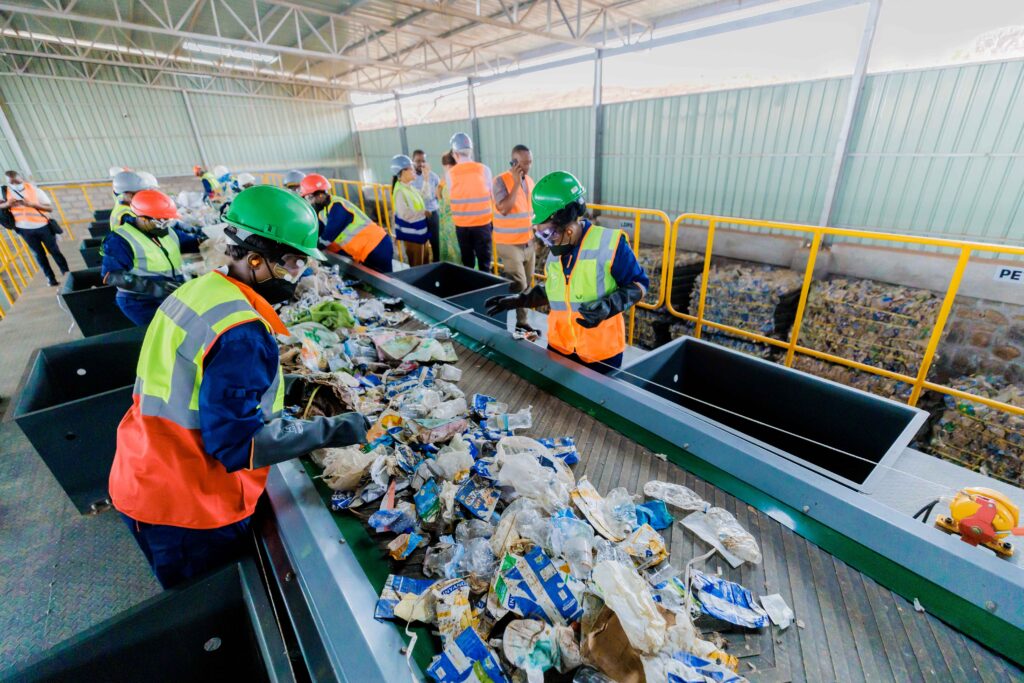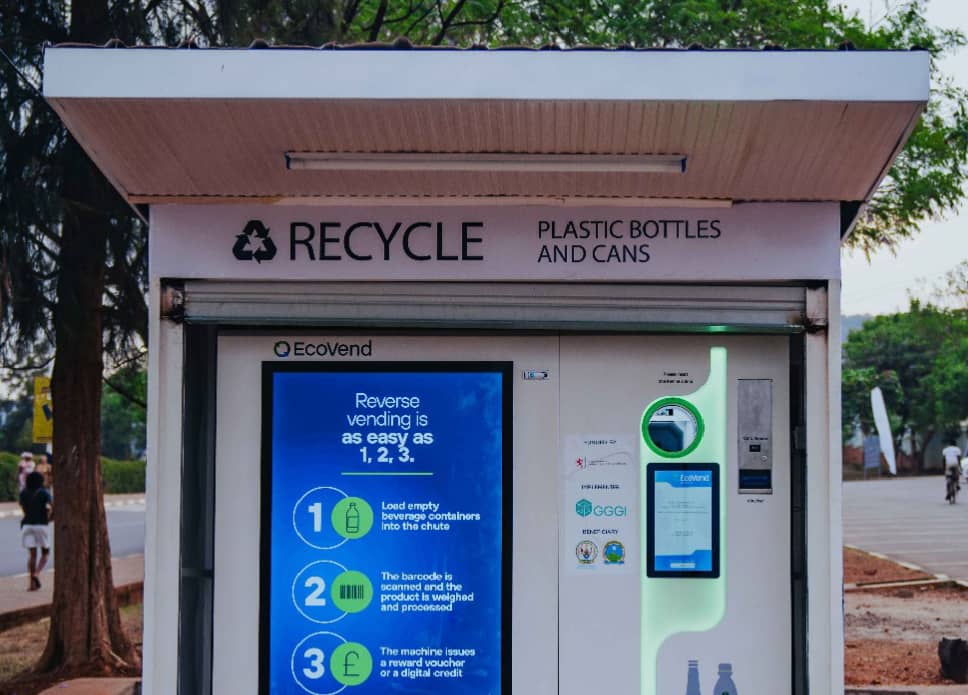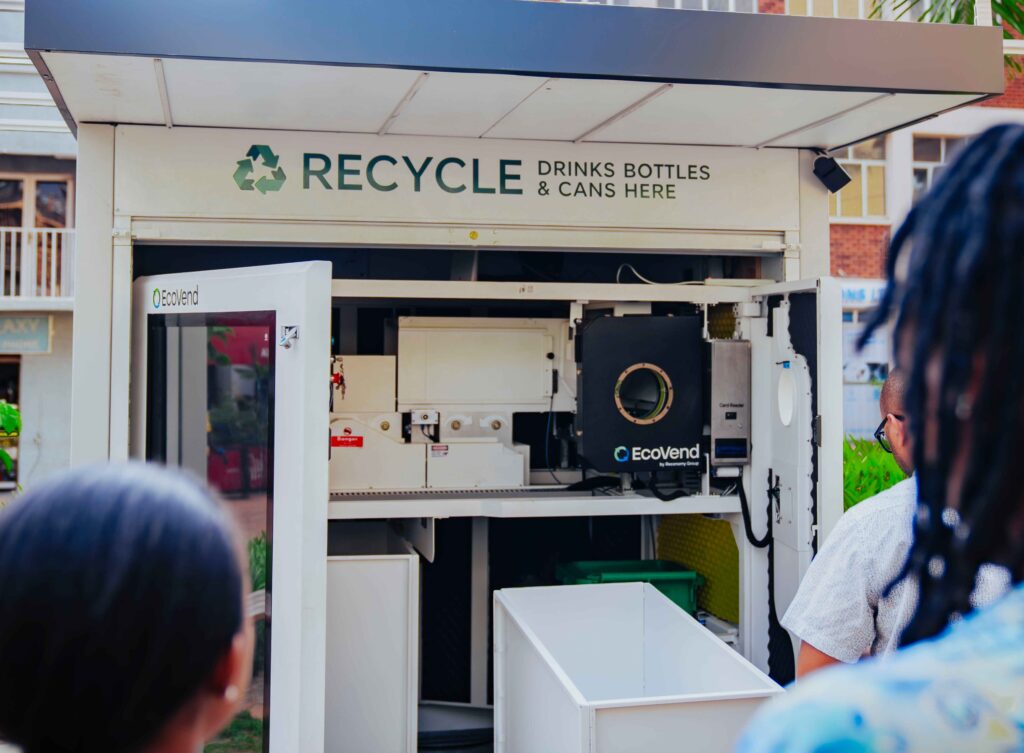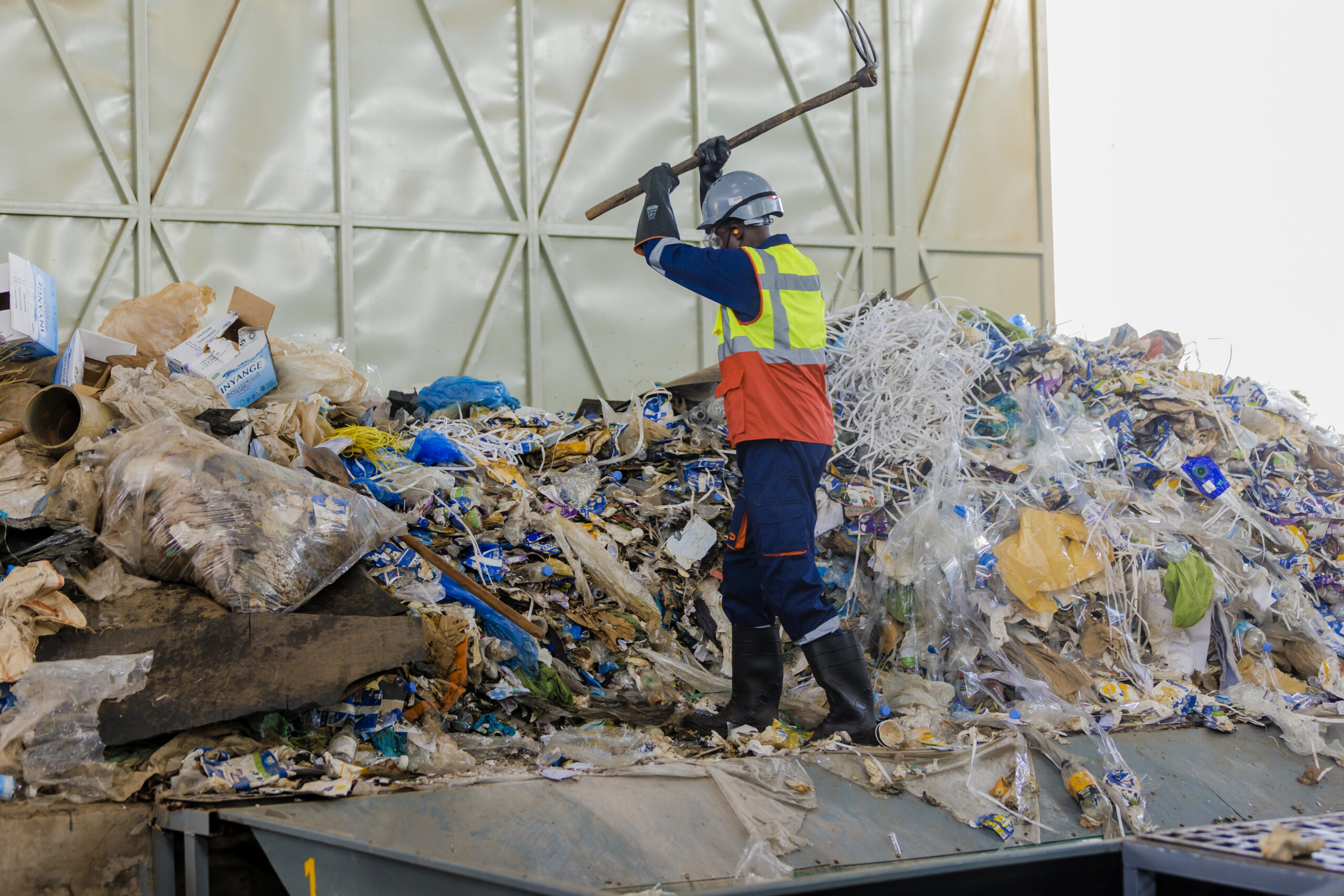Pioneering Waste Management in Rwanda
Rwanda’s rapid economic growth, increasing urbanisation, and rising population have led to a surge in waste generation, posing significant risks to public health and the environment. Committed to achieving carbon neutrality by 2050, Rwanda has made waste management a key focus. In partnership with the Global Green Growth Institute (GGGI), the Ministry of Environment has rolled out the “Waste to Resources Project” to turn this problem into an opportunity, driving the nation toward a more sustainable future.
Two standout initiatives from this project are shaping the future of waste management in Kigali. The pilot waste valorisation facilities at the Nduba dumpsite are now operational, featuring advanced sorting, organic waste treatment, and measurement systems. Additionally, four reverse vending machines (RVMs) will soon be introduced across the city. These machines will encourage residents to recycle plastic bottles, cans, and e-waste and get rewards in return.
These initiatives represent a transformative step in Rwanda’s journey toward sustainability, paving the way for reduced waste, lower emissions, and a greener future.
The Role of the Nduba Waste Valorisation Facilities

The new facilities at Nduba dumpsite are designed to tackle waste more efficiently and sustainably. The Waste Sorting and Separation Facility can handle 100 tons of waste every day. This means waste is better organised, so more materials like plastics and metals can be recycled instead of ending up in landfills.
Next, the Bio-Waste Treatment Facility transforms organic waste like food scraps into organic fertilisers. This helps reduce the amount of waste while providing eco-friendly products that can be used in farming, cutting down the need for chemical fertilisers.
These facilities make it easier for Kigali to manage its waste by reducing what goes to the landfill, reusing valuable materials, and creating new jobs. They’re important in cutting down greenhouse gas emissions and moving toward a greener future.
The Reverse Vending Machines (RVMs)


Kigali is about to get an exciting upgrade with the installation of four reverse vending machines (RVMs) across the city. These machines are designed to make recycling easy and fun. How? By giving rewards in exchange for used plastic bottles, glass bottles, and cans.
The idea is simple: drop in your recyclables, and the machine rewards you instantly. It’s a win-win; residents get incentives, and Kigali gets cleaner streets. After the disposal of plastic bottles, glass bottles, and cans, among other types of waste, Enviroserve Rwanda collects them for proper management and recycling. By encouraging people to participate in recycling actively, these RVMs help reduce plastic waste, promote proper disposal, and create a more sustainable community.
Rwanda’s innovative waste management solutions, including the Nduba valorisation facilities and the introduction of reverse vending machines, are a game-changer for Kigali. These efforts go beyond waste reduction; they engage the community, create green jobs, and contribute to the nation’s carbon neutrality goals. By turning waste into resources and encouraging responsible recycling, Enviroserve Rwanda is helping Rwanda set a powerful example of sustainability for other African countries.


